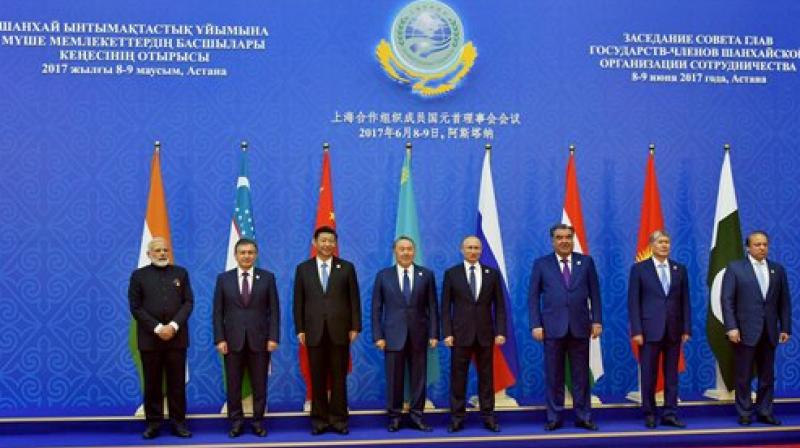Will SCO membership work?

India and Pakistan together joined the Shanghai Cooperation Organisation, the body of Eurasian states crafted by Russia and China in the aftermath of the break-up of the Soviet Union essentially to deal with security concerns, as full members on Friday at the SCO’s Astana summit in Kazakhstan. Only experience will show how their presence helps to mitigate security concerns. From its early days the SCO paid attention to keeping away “terrorism, separatism and extremism” — clearly indicating its wariness of the possible spread of political Islam in the region. The promoters of the body will doubtless hope that Pakistan’s scope for mischief in this regard may be reduced if it is organisationally embraced and given economic support as well as an incentive.
The bilateral courting of Islamabad by Washington and Beijing hasn’t particularly brought about favourable results on the front of terrorism spreading. Indeed, the story of Kashmir from the Pakistani side is all about promoting “terrorism, separatism and extremism”. However, it is to be hoped that the SCO will be a moderating factor on Pakistan, politically speaking. Participating at the summit, and later meeting China’s President Xi Jinping on its sidelines, Prime Minister Narendra Modi highlighted the need for regional economic connectivity while keeping in view the sovereignty concerns of others — clearly a reference to China’s Belt Road Initiative that passes through Pakistan-occupied Kashmir, infringing Indian sovereignty. As SCO members, India and Pakistan troops may jointly take part in anti-terrorism exercises, which is an irony considering that their membership of Saarc has done little to rein in terrorism.

